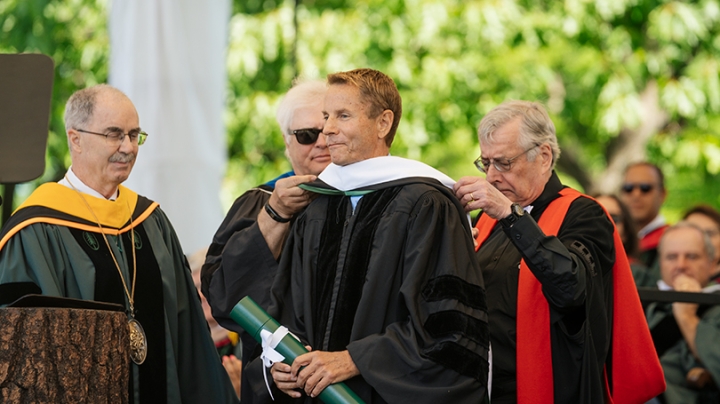WILLIAM HILBRANDT HOLMES, with fearlessness and aptitude, you’ve made medical miracles possible for patients on every continent.
You graduated from Dartmouth with distinction in 1979 before earning your medical degree, though your education did not end there. A true life-long learner, you never stopped training. Your constant desire to broaden your medical skills has made you an exceptionally versatile and gifted practitioner in the most challenging of settings and circumstances.
With a tremendous sense of altruism, you dedicated your life to traveling the world, often at great personal risk, from one disaster-stricken area to the next, providing direct medical care to victims of war, genocide, poverty and natural disasters.
Cognizant of local customs and respectful of cultural differences, you provided compassionate care to the neediest of patients in every corner of the globe, from an Inuit village in Alaska to a refugee camp in Cambodia. You founded hospitals in Mongolia and Nepal and, over a span of three decades, partnered with dozens of aid and humanitarian organizations to advance public health in the world’s most vulnerable areas.
You documented your experiences in the 2011 book, “Voices from the Peace Zone,” donating author royalties to Third Monday, a charitable foundation you established 25 years ago with your friends from Dartmouth to bring light and hope to children struggling in the most distant parts of the world.
For your selfless acts of service in providing outstanding medical care to patients around the globe and for your unwavering commitment to strengthening health care systems in the lesser developed world, Dartmouth is proud to award you the honorary degree of Doctor of Humane Letters.
